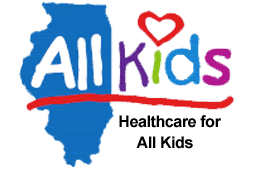Glenview DentiStar Tips for Kids
Baby Teeth Matter!!!
When a baby tooth is lost too early, the permanent teeth can drift into the empty space and make it difficult for other adult teeth to find room when they come in. This can make teeth crooked or crowded. That’s why starting infants off with good oral care can help protect their teeth for decades to come. We recommends that parents take children to a dentist no later than their first birthday and then at intervals every 6 months.
Start Early
Teaching your child good oral hygiene habits early can help lead to a lifelong healthy smile. Your child’s baby teeth are at risk for decay as soon as they first appear—which is typically around age 3-6 months. Tooth decay in infants and toddlers is often referred to as Baby Bottle Tooth Decay. It most often occurs in the upper front teeth, but other teeth may also be affected. In some cases, infants and toddlers experience decay so severe that their teeth cannot be saved and need to be removed.
BUT, the good news is that tooth decay is preventable! Attention to oral care at home and brushing 2x a day is all it takes to have a healthier mouth !!!
Cleaning Your Child’s Teeth
0-3 months = Begin cleaning your baby’s mouth by wiping the gums with a clean, moist gauze pad or washcloth. This is called finger brushing. Massaging infant’s gums can help lessen the pain of teething later on.
> 3 months = When your child’s teeth begin to come in, brush them gently with a child-size toothbrush and water. A baby’s front four teeth usually push through the gums at about 6 months of age, although some children don’t have their first tooth until 12 or 14 months.
> 2 years of age = Once they are able to fully spit out the toothpaste, brush their teeth with a pea-sized amount of fluoride toothpaste. Show-Tell-Do. Show them how to brush their teeth, Tell them how to brush, then have them brush on their own. But always remember to check their work and help them with brushing the back molars !!!
until 7 years of age = continue to brush your child’s teeth twice a day with a child-size toothbrush and a pea-sized amount of fluoride toothpaste.
Dental Emergency !!!
Accidents can happen anywhere, anytime. Knowing how to handle a dental emergency can mean everything. For all dental emergencies, it’s important to take your child to the dentist or an emergency room as soon as possible.
Some Helpful tips in case of dental emergency:
- For a knocked-out tooth, keep it moist at all times. If you can, try placing the tooth back in the socket without touching the root. If that’s not possible, place it in between your child’s cheek and gum, saliva or in milk. Call your dentist right away.
- For a cracked tooth, immediately rinse the mouth with warm water to clean the area. Put cold compresses on the face to keep any swelling down. Call us right away.
- If your child bites his tongue or lip, clean the area gently and apply a cold compress.
- For toothaches, rinse the mouth with warm water to clean it out. Gently use dental floss to remove any food caught between the teeth. Do not put aspirin on the aching tooth or gum tissues. Call us right away.
- For objects stuck in the mouth, try to gently remove with floss but DO NOT try to remove it with sharp or pointed instruments.
TIPS FOR TEENS
- Always brush your teeth 2 x a day with fluoride toothpaste for 2 minutes
- Floss between your teeth daily
- Avoid sugary and starchy snacks
- Wear a mouthguard if involved in team sports/activities
- DO NOT smoke
- DO NOT pierce your lips or any part of your mouth
- See your dentist. Regular dental visits will help you be Mouth Healthy for Life.
KIDS Patient Special: $69
[Includes Exam, Xrays, Prophylaxis, School Dental Exam Form]
Most PPO insurances accepted,
All Kids Insurance welcome !!! 
